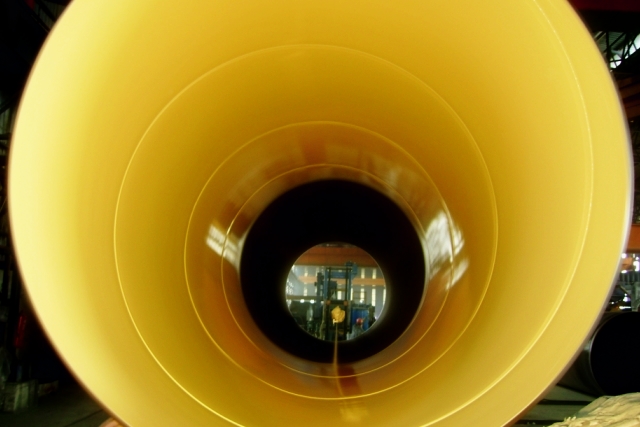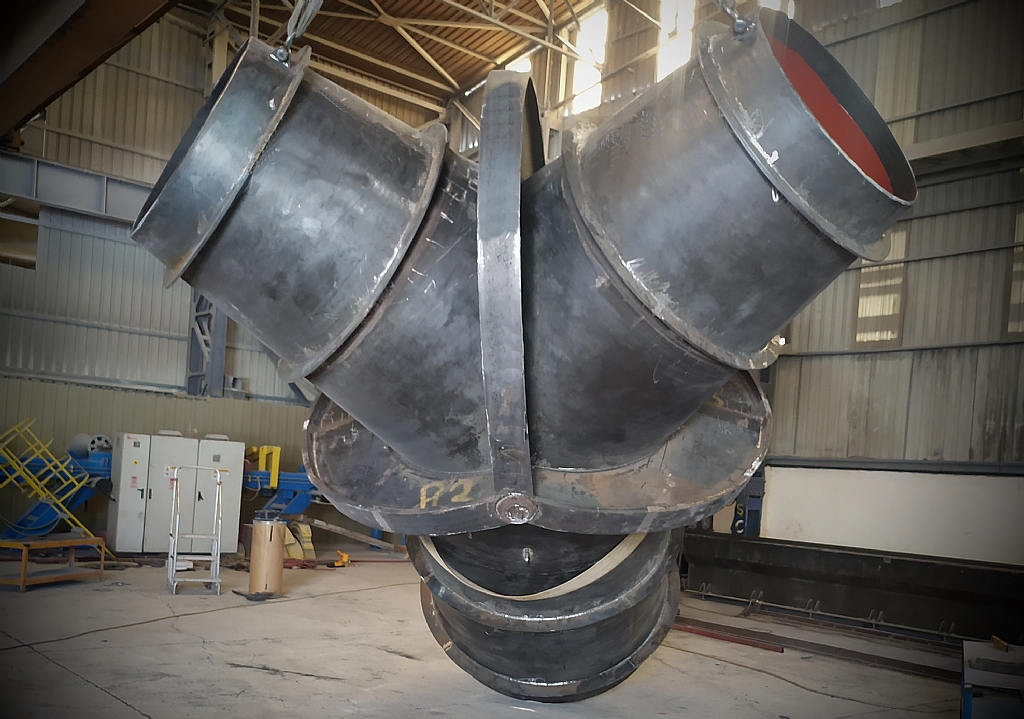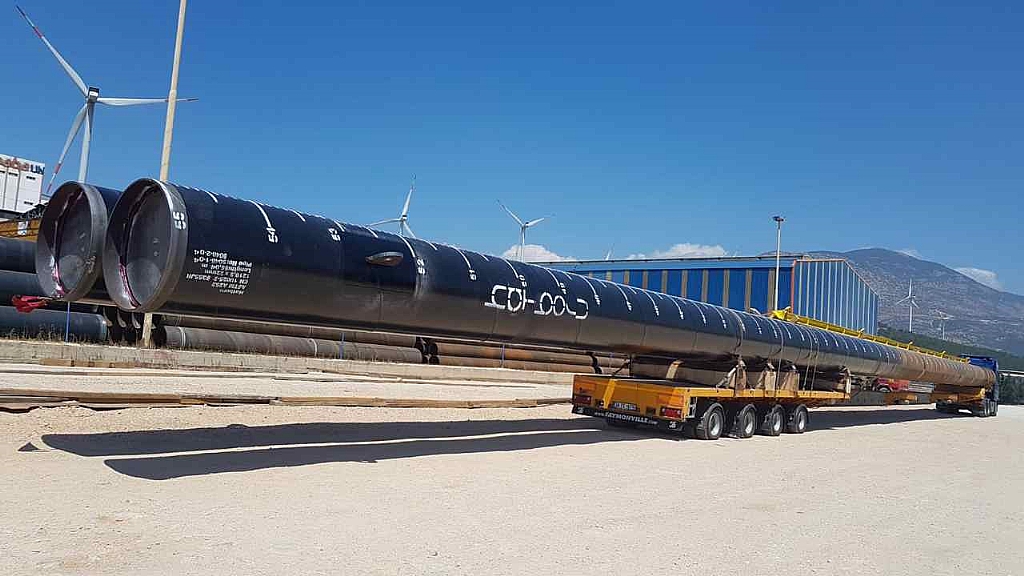Description
Air, water, soil, and chemical agents are corrosive elements that affect steel pipes just like all other materials. However, this effect can be prevented through the coating & lining of pipes with suitable coating & lining materials based on the intended use of such pipes.
Committed to ensuring high quality and paying meticulous attention to detail in coating & lining just as in steel pipe manufacturing, HATBORU offers Polyethylene, FBE, Polypropylene,
Internal and External Coating & Lining
Air, water, soil, and chemical agents are corrosive elements that affect steel pipes just like all other materials. However, this effect can be prevented through the coating & lining of pipes with suitable coating & lining materials based on the intended use of such pipes.
Committed to ensuring high quality and paying meticulous attention to detail in coating & lining just as in steel pipe manufacturing, HATBORU offers Polyethylene, FBE, Polypropylene, Epoxy, Polyurethane, Coal-tar enamel, and Concrete coating & lining based on the requirements of steel piping projects.
Preparation of Surface for Coating & Lining
Surfaces to be coated are required to be completely free of dirt, rust, and scaling prior to coating. For this reason, the internal and external surfaces of pipes are cleaned up to Sa 2 ½ using steel shot/grit blast cleaning in customized sandblasting machinery.
Polyethylene Coating
Polyethylene coating is a type of coating often used in oil, gas, and water pipelines. It provides high mechanical strength and corrosion resistance for pipes laid underground. Normal-type (low density) coating is resistant up to a continuous operating temperature of 60ºC whereas special-type coating (high density) is resistant to a wide range of continuous operating temperatures such as – 60ºC / +80ºC. Hatboru performs both normal-type and special-type polyethylene coating in compliance with relevant quality requirements and applicable standards.
FBE (Fusion Bonded Epoxy) Coating
FBE coating is applied to the internal or external surface of steel pipes treated to the desired temperature using the spray method after sandblasting as per the applicable standards and in line with customer requirements. Sanitary coating suitable for carrying potable water is used on internal surfaces whereas various types of coating resistant to soil or seawater corrosion are used on external surfaces.
Epoxy Coating
Various types of epoxy are applied to the internal or external surfaces of pipes using the spray method after sandblasting as per the applicable standards and in line with customer requirements. Sanitary coating suitable for carrying potable water is used on internal surfaces whereas various types of epoxy coating resistant to soil or seawater corrosion are used on external surfaces. Solvent-free epoxy coating is used in potable water projects, coaltar epoxy coating is used in irrigation pipes, glass flake epoxy coating is used in pipe piles, and flow coat epoxy coating is used in natural gas pipelines in order to facilitate gas flow by reducing surface roughness.
Polypropylene Coating
It is applied in the same manner as Epoxy Coating. It not only ensures high strength and corrosion resistance, but it is also resistant to a continuous operating temperature of up to 120ºC in pipes laid underground.
Concrete Lining
Concrete Lining is a type of lining especially applied to the internal surface of potable water pipelines. Cement mortar is evenly applied to the pipe rotating with high centrifuge using the spray process. It is applied either with an additive or additive-free. The additive used in cement mortar is a binding agent for cement, sand, and water, and it provides surface smoothness to enhance the quality of lining.




 © 2023 Hatboru. Her hakkı saklıdır.
© 2023 Hatboru. Her hakkı saklıdır. 
